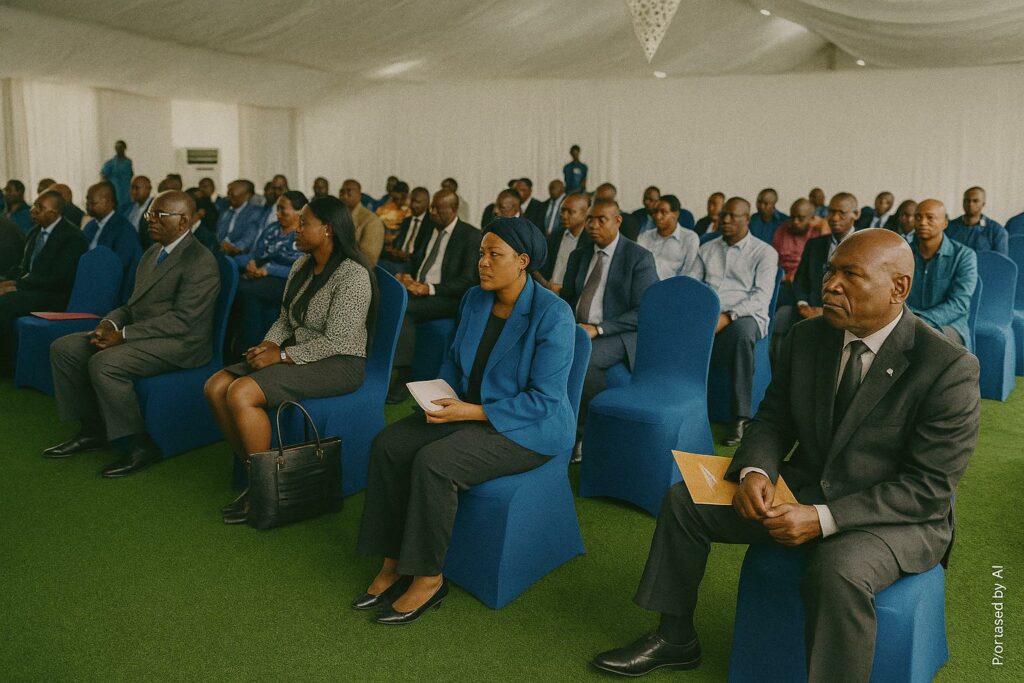Strategic training gains diplomatic traction
The conference hall of the National Institute for Youth and Sports in Brazzaville seldom attracts the attention of chancelleries, yet the four-day capacity-building session that unfolded there from 30 June to 3 July 2025 resonated far beyond its walls. Forty senior trainers, psychologists and social workers gathered under the joint auspices of the Congolese Ministry of Youth and UNESCO to refine their understanding of juvenile delinquency and gender-based violence. Charles Makaya, chief of staff to Minister Hugues Ngouélondélé, pointedly framed the event as a ‘preventive investment in the republic’s social capital’. His remark echoed the government’s broader security-development nexus, recently highlighted by the establishment of the National Agency for Youth Insertion and Reinsertion (2024).
From diagnosis to actionable knowledge
UNESCO’s resident representative ad interim, Brice Kamwa-Ndjatang, reminded participants that Congo shares regional trends of rising urban youth populations and attendant vulnerability to illicit networks (UNESCO 2023). The workshop curriculum therefore moved well beyond abstract theory. Experts dissected local studies by the Central African Economic and Monetary Community, revealing that nearly one in five urban adolescents in the sub-region has faced either unemployment or informal work for over a year (CEMAC 2024). Trainers then matched that data with psychosocial typologies developed by the African Union’s Plan of Action for Youth Empowerment. The dual lenses of empirical evidence and continental best practice allowed attendees to test new intervention protocols that privilege restorative justice over purely punitive approaches.
Gender-responsive frameworks at the core
A striking element of the Brazzaville agenda was the insistence on gender sensitivity. National surveys show that young women are disproportionally affected by school drop-out linked to early pregnancy, while young men dominate statistics on street crime (Congo National Institute of Statistics 2022). Trainers explored methodologies drawn from UN Women’s Safe Cities programme that foster male allyship and female leadership within community sports clubs. The Ministry pledged to pilot these measures at the Aubeville reintegration centre in Bouenza, a facility already praised by the African Development Bank for its vocational track in agro-processing. Aligning sport-based mentorship with economic empowerment, officials argued, can attenuate the root causes of violence rather than merely its symptoms.
Inter-ministerial synergies and local anchoring
The workshop also exemplified a subtle shift in Congo’s governance culture. Justice and Health attachés were invited to co-design follow-up indicators, acknowledging that crime prevention, mental health and legal protection are intertwined. Participants drafted a template for local socio-educational committees to monitor at-risk youth, ensuring continuity between institutional care and neighbourhood networks. This template borrows from the District Development Model piloted by South Africa, yet it is adapted to Congo’s decentralisation law of 2022, which grants mayors new leeway in social programming. Such horizontal coordination, long encouraged by the World Bank in its ‘Human Capital’ portfolio, is expected to reduce programmatic duplication and optimise limited budgetary envelopes.
Translating pedagogy into public policy
The organising team was careful not to portray the seminar as an isolated event. By September, graduates will conduct cascade training sessions for nearly two hundred frontline workers across eight departments. The Ministry has linked certification to career advancement, an incentive structure praised by the International Labour Organization for its ability to retain talent in the public sector. Moreover, data generated through the new monitoring grid will feed into Congo’s forthcoming Voluntary National Review on the Sustainable Development Goals, particularly Targets 16.1 and 5.2 concerning peaceful societies and elimination of violence against women.
A calibrated commitment to social stability
Diplomats watching Congo’s trajectory often focus on macro-economic indicators tied to oil revenues, yet the Brazzaville workshop signals a complementary policy direction: safeguarding demographic dividends through social cohesion. While challenges remain, the deliberate collaboration between national authorities, multilateral agencies and civil society reveals a governance ecosystem that is responsive rather than reactive. By professionalising those who engage daily with adolescents, the government implicitly wagers that prevention is fiscally prudent and politically stabilising. In the measured words of one participant, ‘the most enduring infrastructure is human’. Given the current regional volatility, that may prove to be Congo’s most strategic investment.

